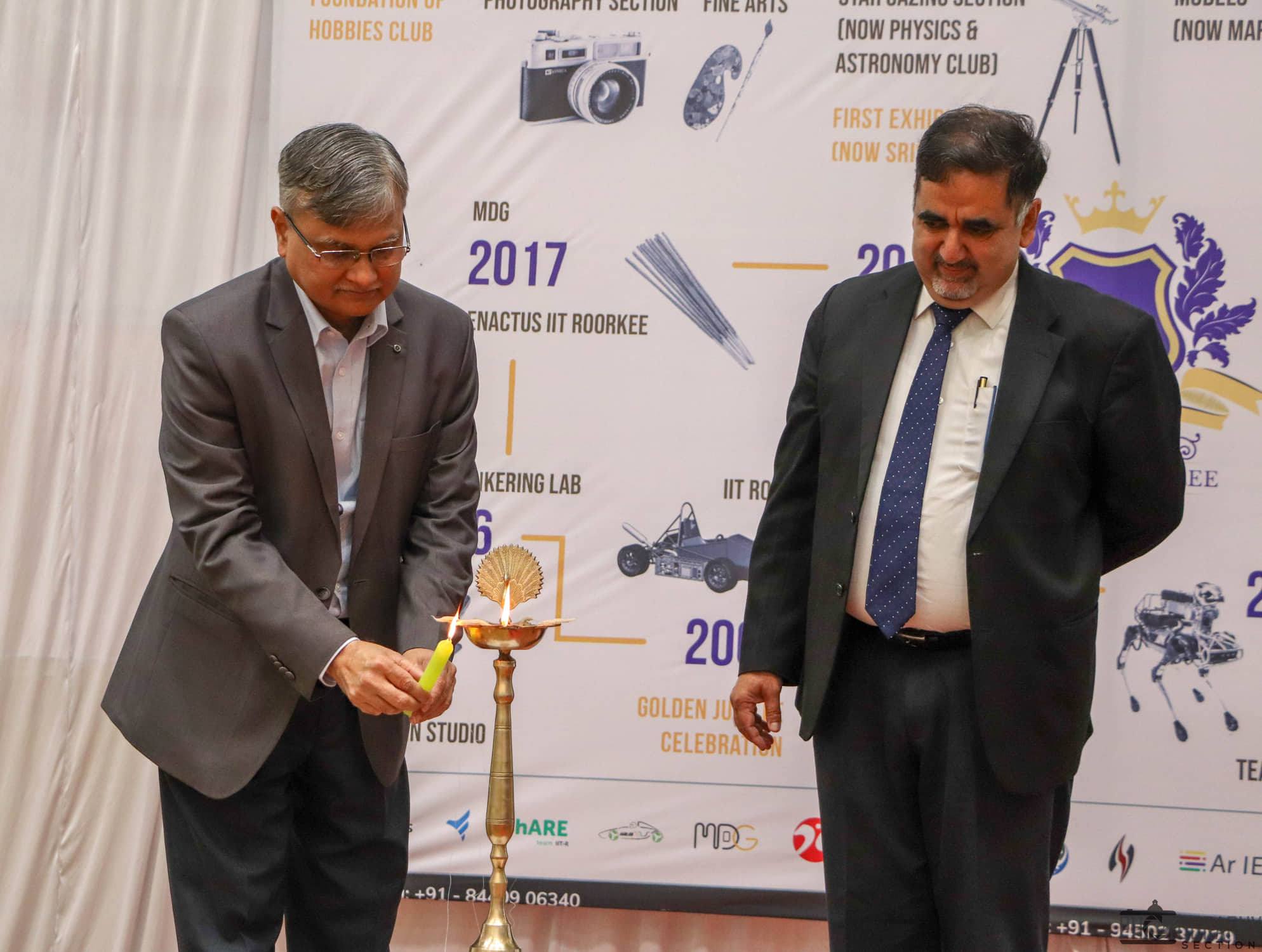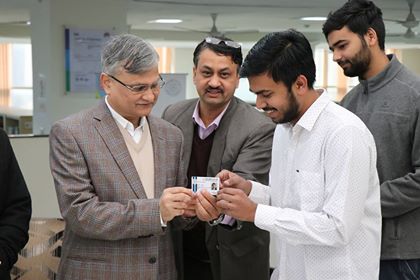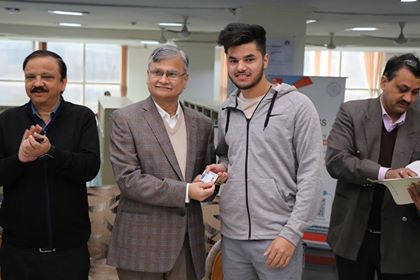

Body of IITR

The process to issue RFID (RF for Radio Frequency) cards to students started off in 2011, and has finally borne fruit. Thanks to the efforts put in by current and past technical teams along with a conducive administration, RFID cards have been produced and are in possession of the institute. The idea behind RFID cards is that they can be used as a unified ID card for a variety of purposes - entry/exit from the campus, access to the library, payment of fines/purchase of coupons, and so on. Some of these initiatives will be under way soon, while other might take more time as the required infrastructural changes are made.
Watch Out spoke to some of the concerned persons at the inauguration about the cards, how they will be rolled out, and what effect they will have on campus life.
Prof. A. K. Chaturvedi, Director IIT Roorkee, stressed the need for information dissemination about the newer initiatives being undertaken at IITR. RFID cards are a major component in his vision of having a 24x7 campus, and he urged students to take advantage of round-the-clock access to the library and departments. He also echoed a message of optimism at the positive changes taking place at IITR.
Prof. M K Barua, ADOSW Student Activities:
“This particular proposal was started about 18 months ago under the tenure of the previous General Secretary Technical Affairs, and today RFID cards have become a reality. The point of these cards is to facilitate students to have smooth entry into different labs, student activities, technical and cultural festivals. Students in foreign universities make extensive use of such cards, using them to enter hostels, labs and even messes.
A lot of students have not provided their data for the RFID cards. They have not uploaded photos, signatures and so on. This was the major reason for the delay. We cannot print the cards unless we have everyone’s data.”
The General Secretary of Technical Affairs, Mr. Ankit Alok Bagaria, along with Mr. Divyansh Jain from his technical team*, explained the RFID card rollout plan:
“Students will be required to collect their cards as per their Department’s notification after submitting their current IDs. In case a student doesn’t have their current ID card, he/she need not go through the whole procedure of creating another one but some alternative provision will be made to facilitate this process of distribution.
While these RFID cards were made two months ago but were delayed because RFID scanners were not installed in the required areas, and a lot of students had not provided the relevant details. While most cards have been issued, if some are still found missing, students would have the facility of filling up the details on-the-spot using a QR code.
The RFID cards are to be implemented in three phases.
The first phase would involve the cards being used to track entry and the exit from the campus area, specifically after 11 PM, which was being handled manually until now. This would also aid in improving the security of the student populace on the campus, since previously the guards only asked entering students their bhawan name. The second phase might facilitate the cashless campus initiative by using Paytm (if we get a positive response from them), with a Payment Gateway integrated into these ID cards for payments for institute expenditures like mess coupons, library fines, snooker table fees etc. The third phase would involve infrastructural changes like changing the entrance doors of departmental laboratories to make sure they are RFID activated ones.
In the coming few months, it is expected that the first phase will be complete. Since a lot of the work in the second two phases is infrastructural, or depends on how our payment partners respond, it may or may not be completed within my tenure. But the necessary paperwork for them will be completed.
Major focus will be paid to make sure this becomes a sustainable system such that in case a student loses his RFID card, certain provisions shall be established for continuing the regular activities unhindered until a newer one is made.
As far as restricting entry of outsiders is concerned, we have observed that it is generally students who create problems when asked to fill in their details. Outsiders don’t create this issue. Outsiders will still fill their details, only now, the students will be asked to scan their RFID cards at entry and exit points.”
Watch Out’s Two Cents

Finally, this is a positive step taken towards a better R-Land, but there still lie some issues which need to be taken care of. While the cards have been finalised from the side of the administration, they are yet to be delivered to the students. We cannot comment on the efficacy of these cards and whether infrastructural changes will follow until they are actually distributed among the students.
The Director has rightly pointed out that the paramount issue facing us currently concerns awareness and the dissemination of information. This holds true especially in the case of RFID cards. A number of people have yet to fill in their data for the IDs. We urge anyone who hasn’t to fill the form at the earliest. They can find the form at http://bit.ly/RFIDiitr2. We sincerely hope that this endeavor reduces the porosity of the campus and makes it a more secure place.
* The technical team assisting Gensec. Tech. consisted of Anunay Joshi, Chandra Pratap Singh, Divyansh Jain and Vipul Ghate